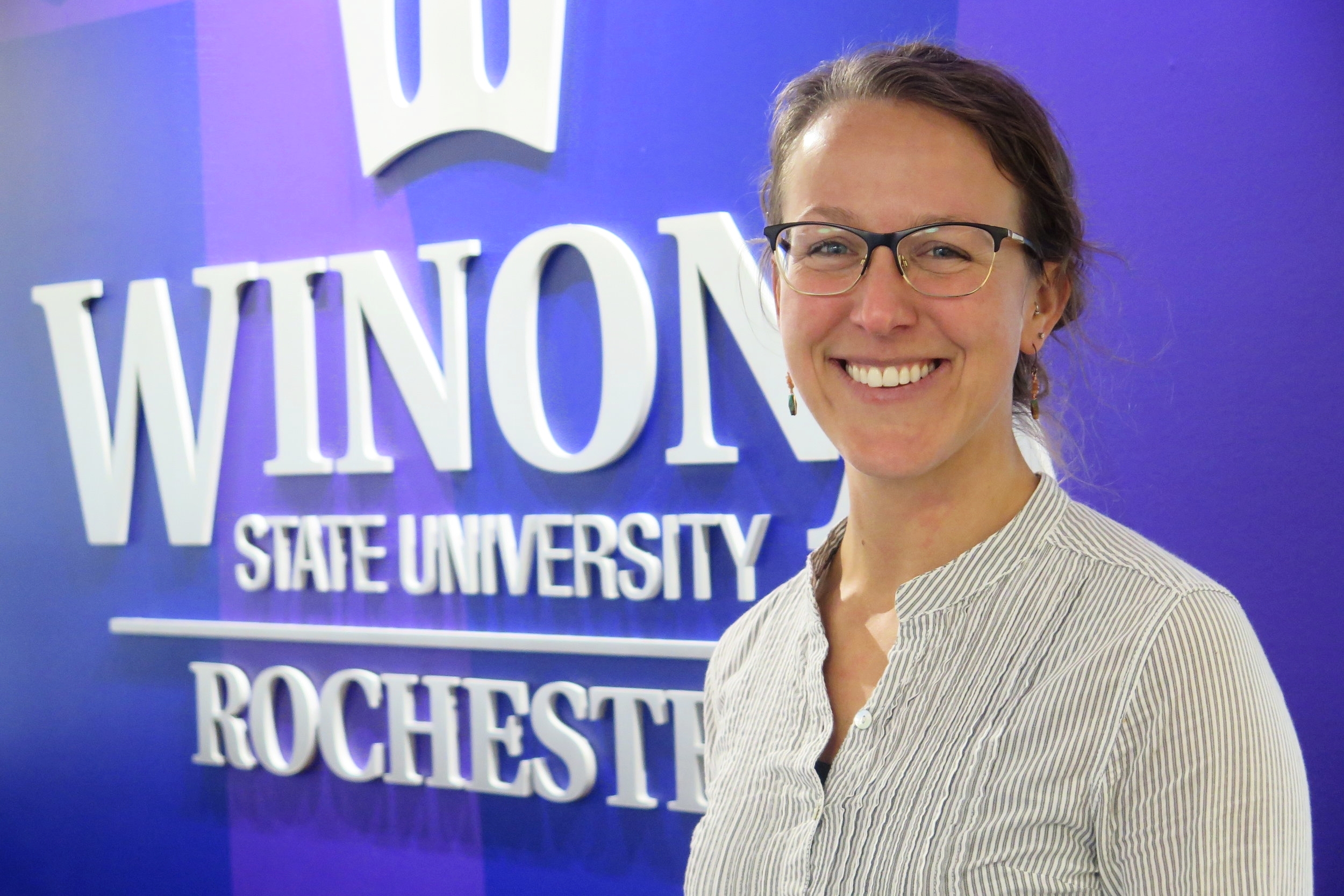The strength to finish school at 58: One local woman’s story
Going back into the classroom in your later years can be a daunting thought. You have missed so much, you tell yourself. Where will you find the time? Most of your peers will be half your age.
The barriers feel immense, the task itself improbable. But for students like Cara Fox, an alumnus of WSU-Rochester, the opportunities available to adult learners have never been greater. Cara, an Ellendale, N.D. native and longtime Rochester resident, graduated in 2011 — at the age of 58 — with her bachelor’s in the Individualized Studies degree program.
“Initially it was quite intimidating,” recalls Cara. “I remember thinking, ‘what are these kids going to think of me?’ (laughter)”
Like many nontraditional students furthering their education outside of normal class hours, Cara had always wanted to go back and complete her bachelor’s degree. She had earned an associate’s when she was in her twenties, and then spent most of her adulthood working in special education and raising her daughter, Catie.
Throughout her life, she had a passion for learning and a curiosity for the world around her. She dabbled a bit in higher education — a course here, a course there — but it was not until a life-altering moment that Cara began to aggressively pursue her degree.
“My husband, Bob, died by suicide seven years ago."
Not too long ago, those words would have been difficult for her to say out loud, never mind publicly. But now, thanks in part to her continued education, Cara is more comfortable discussing her husband’s death and the journey that followed.
After years of volunteering, she is now the southeast Minnesota board chair for the American Foundation for Suicide Prevention, where she helps organize programs and events for those experiencing depression or coping with the loss of a loved one.
It is a role that requires tremendous resilience and courage, but one that provides a way for Cara to channel sorrow into substantive action. Because if her time in the classroom has taught her anything, it's that there is no expiration date on personal growth.
“I needed to be able to express myself, express what the organization needs and the criticalness of preventing suicide — of approaching more people and talking to them,” says Cara. “I feel that’s what my degree has given me: more confidence, more understanding and more awareness. Because I still have a lot to learn.”
We recently met up with Cara on the campus of Rochester Community and Technical College, where she is lead cashier, to discuss her experience going back to school and how it helped her take on a more active role in the community.
Minor edits were made for flow and clarity.
You were working full-time when you went back to school. What was the impact of having courses at WSU-R that worked around your schedule?
Wonderful, absolutely wonderful. I don’t think I could have finished my degree if I didn't have that flexibility … The proximity of living in Rochester and being able to go to school in Rochester and earn your degree is invaluable for a lot of us.
You joked about being the student in class with the most life experience. What was it like studying alongside students the same age as your daughter?
They were the most accepting, the most inviting and welcoming. They loved hearing stories. They loved studying with me because they knew I studied. We got into some incredible discussions.
I think it kept my brain really alert working with them, and staying up-to-date. There are some things that, if you’re removed from schooling, you kind of get into your only little path in life. But being with students opens up a whole 'nother realm of ideas and information about what’s going on out there.
Tell us a bit more about why you chose the Individualized Studies program.
It fit me because I was able to pick and choose from a required course list, with areas that interested me. And it was very broad. I had social work classes, global studies, writing classes, women and gender studies — I could pick and choose as long as they were within the framework of that degree. So I excelled because everything was very interesting to me.
Was it more difficult going back to school the second time around?
It was just the opposite. I aced everything easily. I think my focus was greater, my discipline was greater, my awareness of how I needed to study to retain information was intact. I knew what I needed to do in order to get a good grade, and I wanted to learn.
In what ways has your education helped you in your current job?
[While at WSU-Rochester] I started seeing a greater expanse of what was happening in the world, which has generated an interest for me at RCTC, especially working at the cashiering position. Because we have a lot of diversity here; so understanding some of the cultural differences and still treating everyone with courtesy and respect.
This article is part of a collection of interviews being published in partnership with Winona State University-Rochester.
Cover photo by William Forsman






